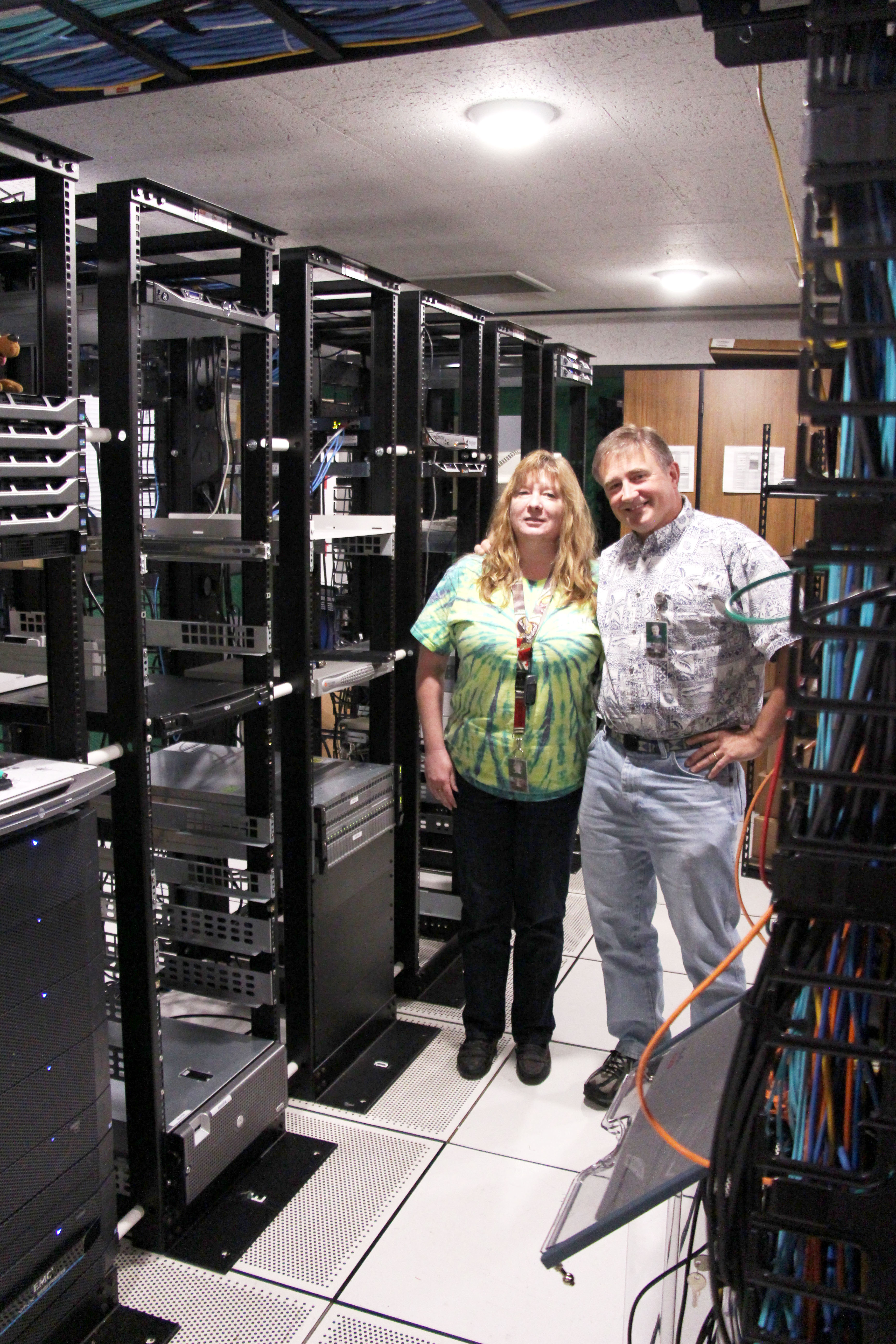New hardware brings promise of smoother Wi-Fi networks across campus

If you’re a UCC student, you use the Internet practically every day you come to campus. To help you out, something new is being developed on campus to increase student accessibility to UCC’s Internet system.
As many students and faculty are aware, many computer workstations on campus are six to seven years old. These computers have either out of date software, obsolete hardware or both.
For the past two years the campus IT department has been working on a long-term project meant to increase the usability of the campus’ wireless network, with the goal of enabling the seamless transfer of Wi-Fi connectivity from one access point to another.
The centerpiece of this project involves updating the current radio signal broadcasters (similar to access points), adding a specialized router and updating the phone system. This would allow security staff and students to travel from one building to another while maintaining a connection to UCC’s wireless network.
A routers purpose is to act as an intermediary between the source of the Internet in UCC, the ISP (Internet Service Provider), and the campus’ internal network. The router acts as the central control over the network determining who has access to the internal networks, as well as managing the Cisco switch system, whose job is to monitor and control the traffic in specific sectors of the network.
“The Cisco switches manage all the traffic on the network. These are called intelligent managed switches. And so what they do is they watch the traffic, they watch what kind of traffic it is and where it is going. If it can determine a better path in the network for that traffic, it will do it,” Dan Yoder, director of UCC’s IT Department, said.
Because the system is able to choose the “better path,” the users will experience increased speed when contrasted to the previous set-up for the Wi-Fi network.
According to Yoder, benefits of the new setup are, first, that the network will be capable of load balancing. This means the system will be able to determine which access points are overloaded and shift users to less heavily used access points nearby.

Another benefit of the updated wireless system that students and faculty may find useful is a feature called a radio shadow. The radio shadow will utilize the campus’ Wi-Fi network to strengthen the reception of supported cell phones within range. This is accomplished by using the new router to transfer signals from cell phones located within UCC’s Wi-Fi network and then forwarding the signal to each provider.
In order for the radio shadow to be set up, a ShoreTel Mobility Router will need added to UCC’s network. The different improvements involved in upgrading to a new router will be partially funded by a $2.2 million Title III grant from the Department of Education. The goal for these funds is to increase the areas on campus with either online or computer access for other activities such as photo editing.
But, overall the main goal of the project is to expand and strengthen the Wi-Fi capability on campus. According to Cynthia Horkey, Title III Project Manager, the grant funds used by the IT department is meant to be used to strengthen and streamline the wireless infrastructure on campus.
The current Title III grant started two years ago and will span a total of five years, with each year bringing in additional funds for various initiatives. Outlined below is the sequence of steps that have been completed as well as what needs to follow in order to bring the current system up to a more modern standard.
Starting last year, all of the network switches were replaced with Cisco switches, and the Ubiquity access points around campus were replaced with Ruckus access points.
The new access points and Cisco switches have enabled the Wi-Fi quality to raise. “It cleaned up a whole bunch of the network bottlenecks. So that we have gigabit speed all over campus now. And number two, by going with Ruckus wireless access points we were able to cover areas that were previously dead spots,” Yoder said.
Kathy Thomason, UCC Network Administrator, clarified, “I think that the bottleneck will be people’s devices, because I don’t think most people’s devices will have support for the AC standard.” The Ruckus AP’s support up-to the AC wireless standard The AC standard is the next step up from the N wireless standard in speed capability. Thomason emphasized, “Our newest access points will support the AC standard.”
Currently G, N and AC are the most commonly used wireless standards supported by laptops and other related personal devices such as iPad. The following is the speed each standard is capable of. G is capable of speeds up to 54 Megabits/s, N up to 600 Megabits/s and AC up to 1 Gigabit/s.
The deciding factor in choosing the Ruckus access points was that they are able to take care of the security staff’s communication system as well as the campus Wi-Fi network. The main purpose for upgrading the access points and network switches was to allow the purchase of a type of more effective router called a ShoreTel Mobility Router.
To install this new piece of hardware, the other parts of the system needed to meet a certain standard and also fulfill compatibility requirements with the router.
An IT department can sometimes resemble a deck of cards. Move one card, and the others come tumbling out. The campus computer system is so connected that in order to improve speed and accessibility, even the UCC ShoreTel phone system, which is VoIP (Voice Over IP) based, needs to be upgraded to the current version.
In order for that to happen, any Windows XP workstation that is connected to the phone system needs to be upgraded to Windows 7.
Yoder estimated that the computer workstations that need to be upgraded for this project will be replaced by Jan. 15. As of the first week of Dec., Lockwood Hall, Wayne Crooch Hall, the Warehouse and most of the Campus Center are complete.
According to Yoder, the ShoreTel Mobility Router has already filled out a order purchased and the router will be ordered once all of the PC’s are updated to Windows 7 and the ShoreTel phone system is updated to the latest version.
Once the router is in place, the IT department will be able to set up a radio shadow over UCC’s campus.
Yoder also wants to complete a Wi-Fi survey to determine the extent of the campus’ coverage.
Its main purpose is to determine how best to accommodate the new building into the campus’ network, as well as how to get the most complete coverage possible. Matrix, the vendor for Ruckus access points and the ShoreTel phone system, has agreed to come and do an evaluation.
